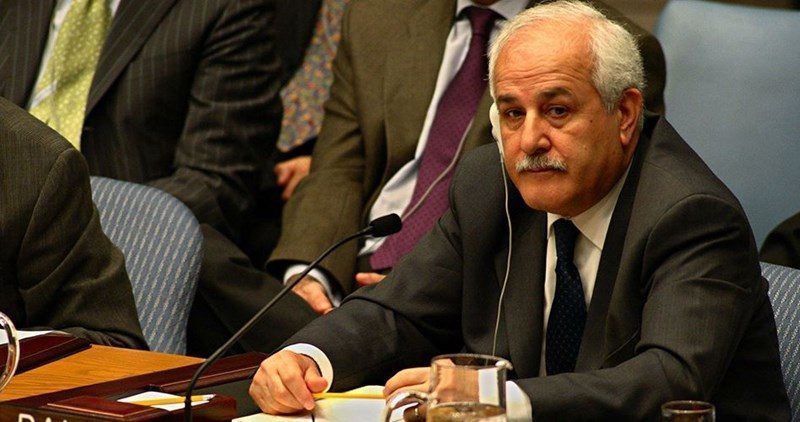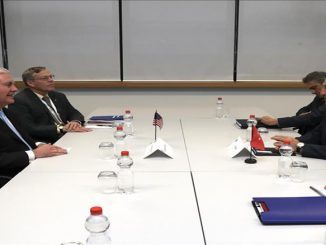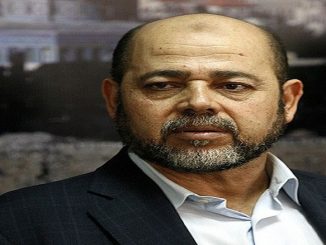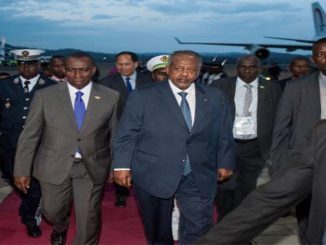
The Palestinian Authority ambassador to the United Nations, Riyad H. Mansour, said Friday that his government had begun preliminary negotiations with Egypt to define the extent of Palestinian-claimed territory in the Mediterranean off the roughly 25-mile-long coast of Gaza, the strip bordering Israel and Egypt where roughly 1.8 million Palestinians live, According to the New York Times.
The Middle East peace process is stalemated in part because of disagreement over the appropriate land borders for Israel and a future state of Palestine. Now the Palestinians are taking the first steps toward establishing what their state would claim at sea.
Riyad Mansour said that the Palestinian and Egyptian foreign ministers began preliminary talks recently to specify their territorial waters and delegated technical teams to complete the discussions in this regard.
According to his remarks, the PA aims to establish an exclusive economic zone (EEZ) off the coast of Gaza and to explore undersea resources in accordance with the UN convention on the law of the sea.
Mr. Mansour said the negotiations, which he described as having begun recently, were possible because of the Palestinian territories’ United Nations status as a nonmember observer state, which the General Assembly recognized in November 2012.
That status empowered the Palestinians to achieve membership in United Nations bodies and treaties, like the convention that created the International Criminal Court, much to the irritation of Israel and the United States, its most important ally.
In this case, Mr. Mansour said, the Palestinians have taken action as signers of the Law of the Sea Convention, a 1982 treaty that codifies international law concerning territorial waters, sea lanes and ocean resources.
“The Palestinian strategy is to reach agreements with two of its neighbors in the Mediterranean, first Egypt and then Cyprus, in order to define our exclusive economic zones, and then consult with lawyers as to what the potential borders with Israel could be,” he was quoted as saying.
The ambassador said the Palestinians were entitled to declare an undersea “exclusive economic zone” in the Mediterranean under provisions of the treaty. While neither Israel nor the United States has signed the treaty, it still has the force of international law.
“We are heavily involved in the Law of the Sea because, among other things, it deals with issues related to our borders and our exclusive economic zone off the coast of the Gaza Strip,” Mr. Mansour told a group of reporters at the United Nations.
“And we are negotiating, particularly with Egypt, the demarcation of our border of the sea,” Mr. Mansour said. The goal, he said, is “to declare our exclusive economic zone and to survey our wealth in that economic zone” and to give the declaration to the United Nations agency that administers the Law of the Sea Convention.
It remains unclear how, or whether, the actions could affect the borders of a future Palestinian state, in territories now occupied or controlled by Israel. Negotiations for a two-state solution to the conflict collapsed more than two years ago. Each side has blamed the other for the impasse.
The Palestinians’ use of their United Nations seat to advance the cause of statehood has long angered Israel, which has insisted that only direct talks between the two sides will produce a solution.
The Israelis have described the Palestinian effort as a public-relations campaign that has created a false impression that Palestinian statehood is becoming a reality, whether Israel accepts it or not.
Mr. Mansour’s declarations on the Law of the Sea were sharply criticized by Israel’s United Nations ambassador, Danny Danon.
“This is yet another attempt at hollow victories by the Palestinian representatives,” Mr. Danon said. “They are once again avoiding direct negotiations and instead turning to the international community. This meaningless statement does not bring any stability to our region and, more importantly, will not better the life of a single Palestinian.”
Mr. Mansour described the Law of the Sea negotiations as the latest signal that the Palestinians intended to use the levers of the United Nations to help achieve their aspirations.
“The Israeli occupying authority would like us to show that we are not a state, and what we did in November 2012 is a gimmick,” he said. “They want to keep us in the realm of ‘nothing happened.’ We are showing something historic and significant happened.”
“The Palestinians want to move as quickly as possible but these proceedings could take years,” he added. “For us the fact that we are a state, that our land is under occupation, and that we are joining conventions and treaties, means that we cannot run away from the responsibilities that these treaties and conventions require from us,” the PA ambassador said. “It is our right to declare our exclusive economic zone,” he stressed. An EZZ is an area of the sea over which a country has special rights to explore for and use resources.



